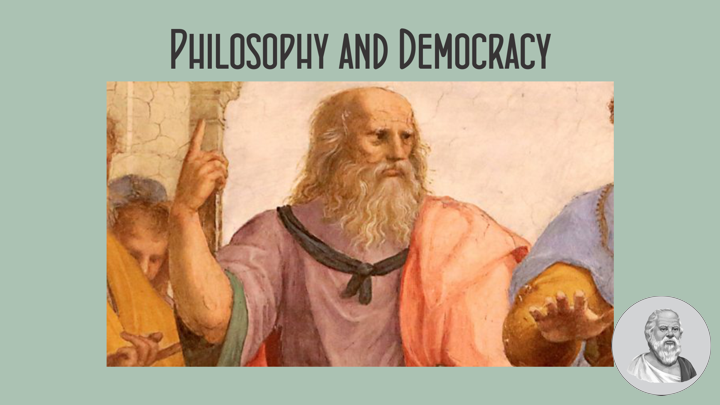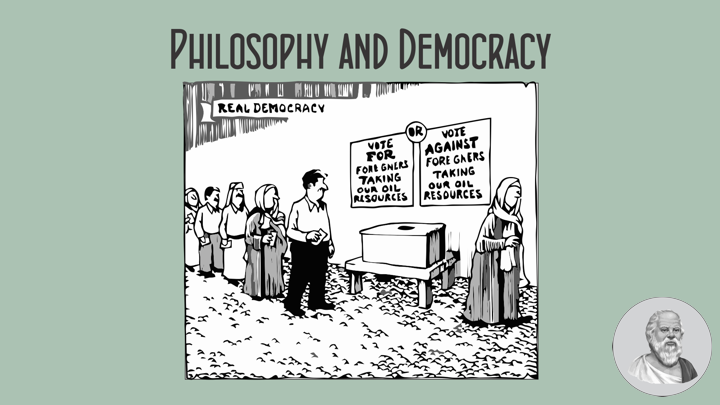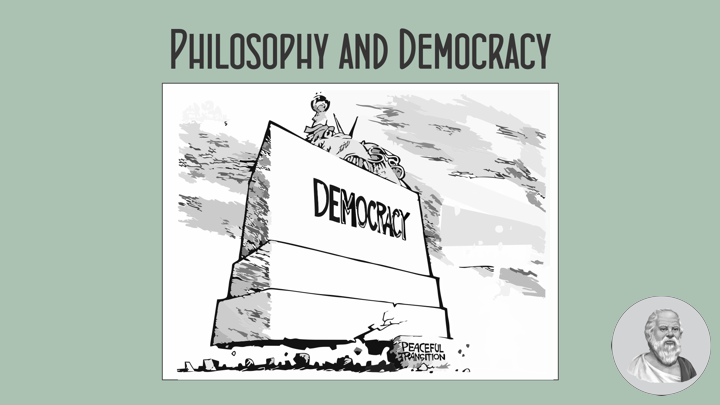——
#Spirituality #Philosophy #PhilosophyDemocracy #Supernatural #WorkLifeBalance #SelfAwareness #SelfKnowledge #SelfTranscendence #PositiveMindset
——
——
——
——
Philosophy and Democracy
Plato was an Athenian philosopher. He is widely considered a pivotal figure in the history of Ancient Greek and Western philosophy, along with his teacher, Socrates, and his most famous student, Aristotle. Plato has also often been cited as one of the founders of Western religion and spirituality. Philosophy is a ladder that Western political thinking climbed up, and then shoved aside. Starting in the seventeenth century, philosophy played an important role in clearing the way for the establishment of democratic institutions in the West. It did so by secularizing political thinking, substituting questions about how human beings could lead happier lives for questions about how God’s will might be done. Philosophers suggested that people should just put religious revelation to one side, at least for political purposes, and act as if human beings were on their own, free to shape their own laws and their own institutions to suit their felt needs, free to make a fresh start.
Normative democratic theory deals with the moral foundations of democracy and democratic institutions, as well as the moral duties of democratic representatives and citizens. It is distinct from descriptive and explanatory democratic theory, which aim to describe and explain how democracy and democratic institutions function. Normative democracy theory aims to provide an account of when and why democracy is morally desirable as well as moral principles for guiding the design of democratic institutions and the actions of citizens and representatives. Of course, normative democratic theory is inherently interdisciplinary and must draw on the results of political science, sociology, psychology, and economics in order to give concrete moral guidance.
Democratic philosophy reaches beyond institutions and systems to examine the practices, habits, movements, mentalities, and dispositions necessary both to support those institutions and to challenge them when they ossify into oligarchic and other undemocratic forms. Democracy as a lived experience, especially in times of crisis and deep insecurity, is nurtured by fundamental inquiry into what it means to be a citizen and what it means to be a political subject more broadly. Finally, democratic philosophy can denote something more than a philosophy of democracy—it can also signify a publicly oriented and civically engaged way of doing conceptual and ethical inquiry.
Democracy is a form of government in which the people have the authority to deliberate and decide legislation. Who is considered part of the people and how authority is shared among or delegated by the people has changed over time and at different rates in different countries, but over time more and more of a democratic country’s inhabitants have generally been included. Cornerstones of democracy include freedom of assembly, association and speech, inclusiveness and equality, citizenship, consent of the governed, voting rights, freedom from unwarranted governmental deprivation of the right to life and liberty, and minority rights.
The current era is that of the end of philosophy. Such an end is tantamount to the irreversible abandonment of the Platonic notion of Truth understood as the expression of an eternal and objective order of all Being. The current era is also that of the emergence as well as the progressive consolidation of democratic societies. It shall be argued that, in a democracy, the erstwhile political supremacy of a specific political and intellectual caste must necessarily be discarded in favour of an open conception the end of philosophy in the age of democracy.
Luc Paquin



